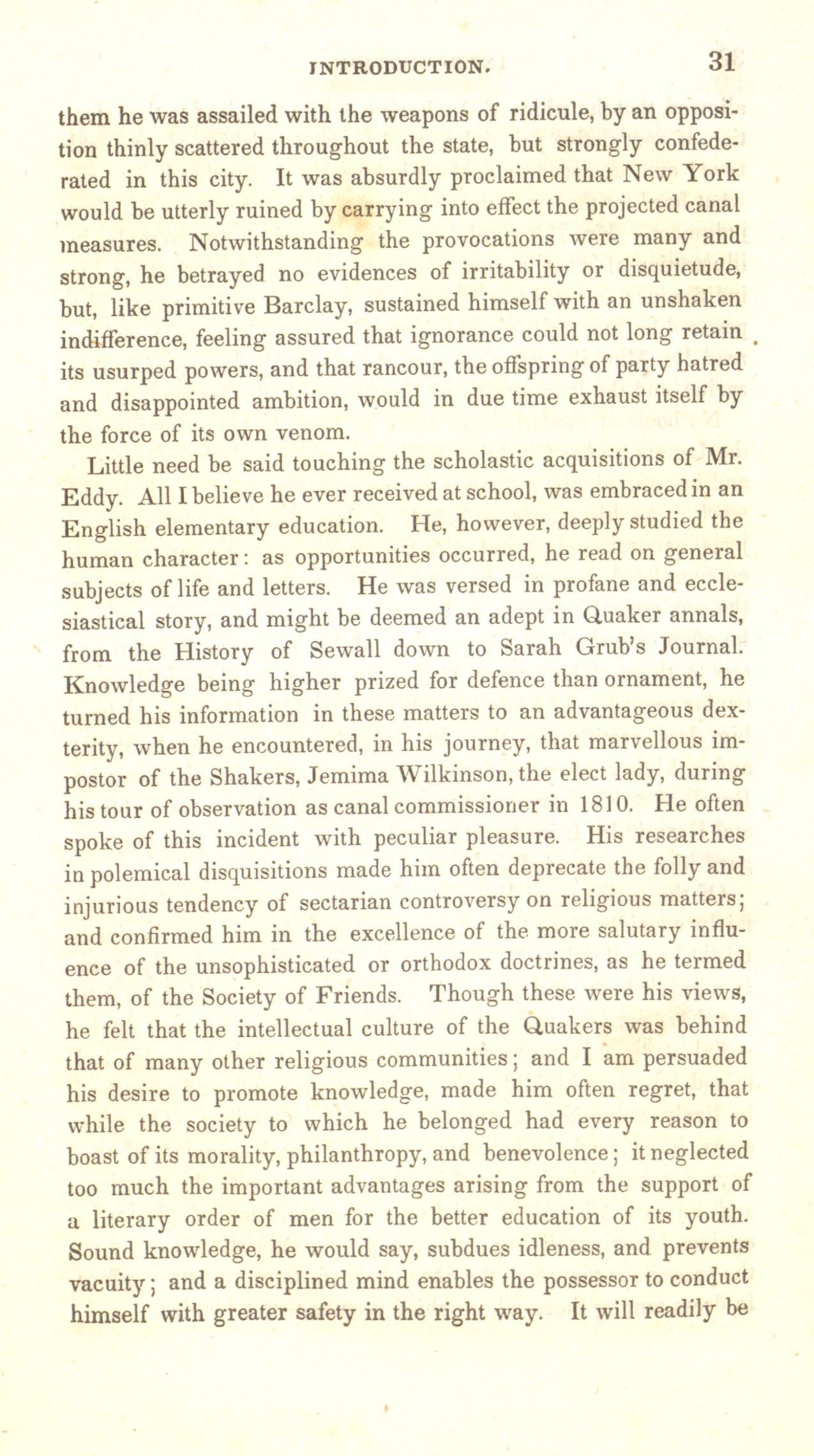them he was
assailed with the weapons of ridicule, by an opposi-
tion thinly
scattered throughout the state, but strongly confede-
rated in this
city. It was absurdly proclaimed that New
York
Place Information
would be utterly ruined by carrying into effect the projected canal
measures. Notwithstanding the provocations were many and
strong, he betrayed no evidences of irritability or disquietude,
but, like primitive Barclay
Person Information
indifference, feeling assured that ignorance could not long retain
its usurped powers, and that rancour, the offspring of party hatred
and disappointed ambition, would in due time exhaust itself by
the force of its own venom.
Little need be said touching the scholastic acquisitions of Mr.
Eddy
Person Information
English elementary education. He, however, deeply studied the
human character: as opportunities occurred, he read on general
subjects of life and letters. He was versed in profane and eccle-
siastical story, and might be deemed an adept in Quaker annals,
from the History of Sewall down to Sarah Grub's Journal.
Knowledge being higher prized for defence than ornament, he
turned his information in these matters to an advantageous dex-
terity, when he encountered, in his journey, that marvellous im-
postor of the Shakers, Jemima Wilkinson
Person Information
his tour of observation as canal commissioner in 1810. He often
spoke of this incident with peculiar pleasure. His researches
in polemical disquisitions made him often deprecate the folly and
injurious tendency of sectarian controversy on religious matters;
and confirmed him in the excellence of the more salutary influ-
ence of the unsophisticated or orthodox doctrines, as he termed
them, of the Society of Friends. Though these were his views,
he felt that the intellectual culture of the Quakers was behind
that of many other religious communities; and I am persuaded
his desire to promote knowledge, made him often regret, that
while the society to which he belonged had every reason to
boast of its morality, philanthropy, and benevolence; it neglected
too much the important advantages arising from the support of
a literary order of men for the better education of its youth.
Sound knowledge, he would say, subdues idleness, and prevents
vacuity; and a disciplined mind enables the possessor to conduct
himself with greater safety in the right way. It will readily be

